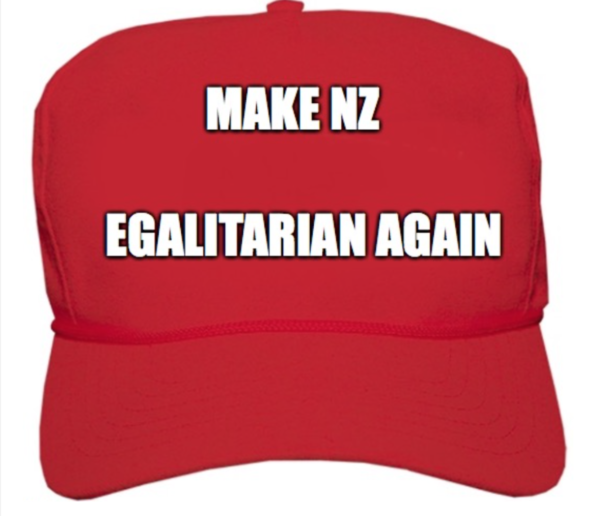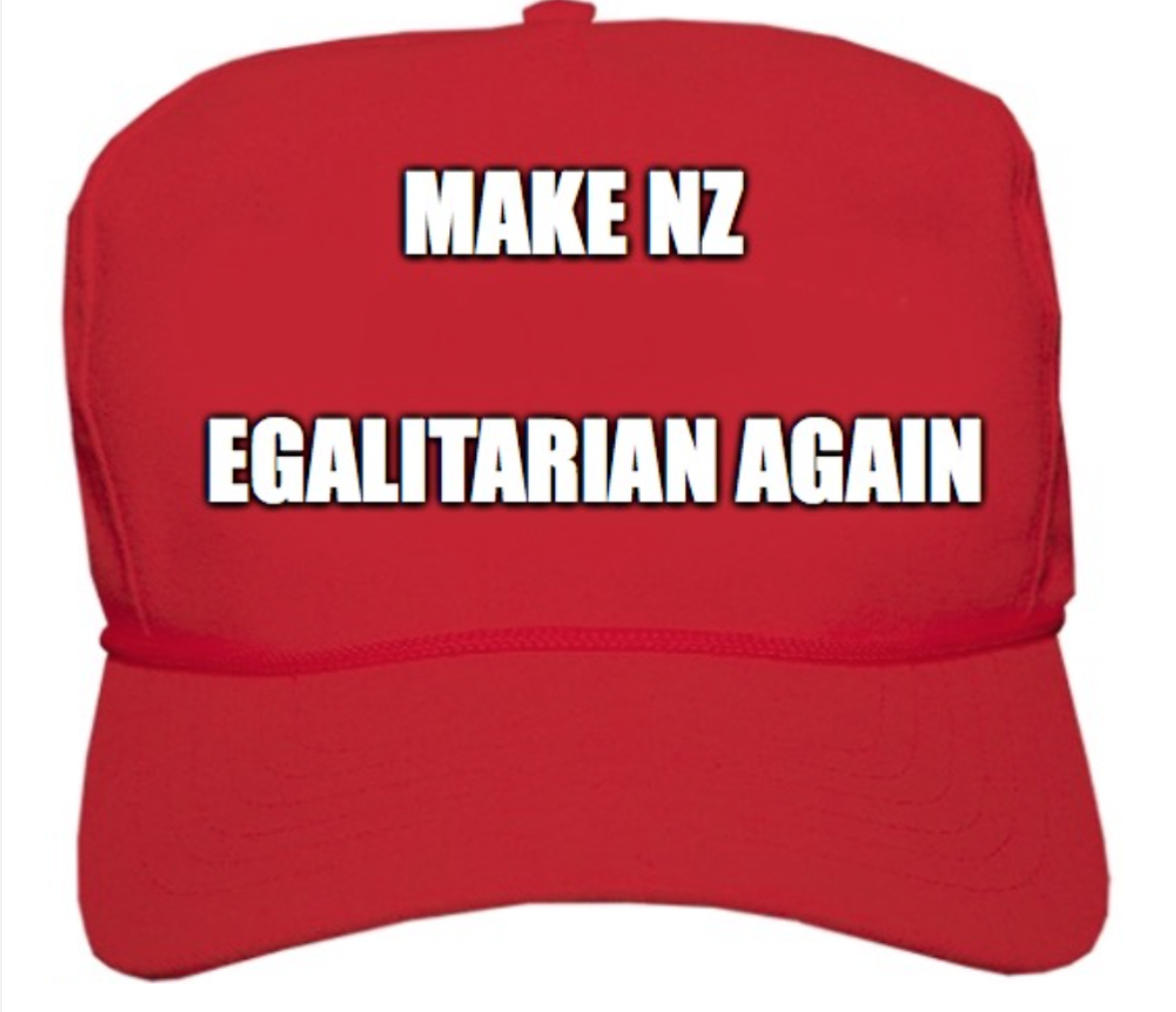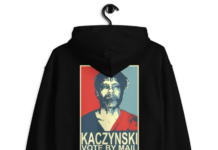
On the 13th February The Salvation Army launched its 2019 State of the Nation report. I wrote this report for the Army as I have for the past 11 years. This year’s report has picked up on the theme of wellbeing and is titled ‘Are you well? Are we safe?
This focus on wellbeing is a response to the Prime Minister’s announcement in early 2018 that the 2019 Budget will be our first wellbeing budget. Since then Government agencies have been busy developing living standards frameworks, wellbeing indicators and child wellbeing strategies. These are all very worthy but risk quickly losing the public in mire of complexity and detail. If this happens then quite possibly ‘wellbeing’ will be lost as an organising idea for public policy because the Government has failed to ignite the public imagination that such a broader focus is feasible.
The Salvation Army’s offering through its 2019 State of the Nation report is an attempt to popularise this wellbeing narrative.
The 2019 report’s title ‘Are you well? Are we safe? was inspired by a mihi whakatau I heard from Te Aroha Morehu of Ngati Whatua Orakei at the opening of a workshop in November 2018. For me these questions define wellbeing. As well it is that act of enquiry with such questions that we are extending our focus to the welfare of our neighbours and fellow New Zealanders.
This year’s report for the first time offers a Maori-non-Maori gaps table as an appendix. This table uses 18 social indicators to report on outcomes for Maori and non-Maori over the past five years or so. These indicators range from teenage pregnancy rates, to youth unemployment and offending rates, to incomes and employment, to demand for welfare benefits and social housing. The table is backed up with a spreadsheet which provides the detailed data behind these indicators.
These 18 indicators were not chosen because they cast the social position of Maori people in the worst possible light so that this position could be used as political capital. They were chosen in part because they illustrate well the appalling inequality suffered by Maori from birth to death and in part because the data existed. There may be social indicators around where Maori do better than non-Maori and if you can find one let me know. I am doubtful that such an indicator exists however.
In the past I have made reference to Maori-non-Maori inequalities in the State of the Nation reports and been criticised a little by Maori and Pakeha for doing so. By some Maori for deficit thinking and highlighting failure; by some Pakeha for sowing the seeds of division and resentment. Against such criticism Maori people worshipping or working within The Salvation Army have asked that their experiences and those of their whanau are represented in the State of the Nation reports, and elsewhere, and this has driven and in fact inspired the publication of this gaps table.
But the Maori-non-Maori gaps table serves a bigger purpose as well. Primarily it points to the appalling inequality suffered by Maori on a comprehensive and enduring basis. For example the rate at which young Maori convicted of an offence are sent to prison is 2.5 times that for non-Maori.
Hopefully too the gaps table will also start to shift the focus on wellbeing away from the middle of middle class lives and experiences and begin to point out the inequalities which should become the main focus of our collective attempts to improve wellbeing.
We could debate endlessly the sources or causes of these inequalities and there is some value in doing so if only so that we can be more honest about our colonial history and the unjust legal and economic systems we continue to operate. There is however a limit to the value of such analysis and argument because it only takes us so far and risks us falling into a blame game which to date has not contributed to our progress as a nation.
The appalling inequality suffered by some Maori, and some non-Maori too, will only be addressed by quite radical reform of our education, welfare and criminal justice systems. The middle class privilege which is engineered into our public education system needs to be dismantled. The conditional and often mean-spirited nature of our welfare system should be over-turned. The patent racism of our criminal justice system needs to be challenged and extinguished.
The Government has set the stage for quite radical reform which such initiatives as the Tomorrows Schools taskforce, the Welfare Expert Advisory Group, and te Uepu or the Safe and Effective Justice Advisory Group.
I am hopeful that the Government will stay the course and pursue radical or at least far reaching reforms which address inequality – especially Maori inequality.
However in being hopeful we have to remain mindful of the way the Clark Government chickened out of its ‘Closing the Gaps’ agenda as soon as the reactionary heat was turned up on it. However, given the subsequent disgraces of the Foreshore and Seabed legislation and the Tuhoe raids, that Government may have been reactionary at its core on any account.
We need to give the Government a mandate for radical policy change and right now such a mandate is not clear. Labour’s reliance on support from New Zealand First is something of a handbrake on any radical reform especially reforms focused specifically on addressing inequality suffered by Maori. By the time of the 2020 election the extent and nature of any reform agenda will be set and it seems likely that this agenda will be the centre-piece of that election.
There is a great deal of work to be done between now and the 2020 election in framing the political discourse around the need for radical change. The forces of reaction and conservatism will be busy attempting to hold back the tide of change. To counter these efforts we to need highlight the consequences of our history and the facts of our unequal society. I hope that the Maori-non-Maori gaps table is a worthwhile contribution to this work.





well put piece Alan
one thing the “powers that be” do not like one little bit is any practical unity between ordinary Māori and Pākehā–which can become a strong force I have observed in local issue struggles in Northland
“othering” groups such as beneficiaries and Māori is the common tactic, historical colonisation, near genocide, and later assimilation, did not eradicate Māori so they are not going away! the reality is if Māori do better, and well, the whole community will be better off
Thank you Allan,
Great work you do, much appreciated.
We found this issue of ‘water’ and ‘who owns our water’ as this was one of more evidence of yet more erosion of our rights to our natural resources; – whom maori hold a deep appreciation of water and its intrinsic values to their heritage and health.
We wrote an article today about this loss of our water by global bottling companies now invading our country and now taking much of our best water sources now and damaging our health and properties as they truck freight the product through our poorer areas to our export ports now. These foreign bottling companies are now seen as ‘environmental thugs’ wrecking our communities lives and health.
‘A new water tax is needed for foreign water bottling companies currently paying no water tax while they are causing harm to our public health and environment.‘
Press release – Citizens Environmental Advocacy Centre Incorporated. 22nd February 2019.
The environmental impacts of business activities of water bottling in NZ are currently not being considered by “The Tax Working Party” group, as to the environmental impacts these foreign overseas companies are causing to our residential communities health and wellbeing now; – consider the cost and harm they are causing us now by only using truck freight transport;
We are supporting placing a new water tax on those foreign overseas companies taking our best water around our country today as they are choosing to exclusively use only road truck freight which has a large carbon footprint and impact on residential health from noise, vibration and air pollution.
Facts;
• The transporting of that water by trucks to production plants and for export is harming our roads as more trucks are gridlocking the roads causing accidents and road damage.
• But the elephant in the room is the harm the extra truck transport going through our cities and causing noise, vibration and air pollution is now adversely affecting the health and wellbeing of many residential areas around the country and councils claim now have no funds to mitigate the adverse effects of these trucks carrying water for export through their residential zones to export.
• The “Tax Working Party” should be a proposing an ‘environmental harm’ cost as part of a tax on the “user pays” principal, to pay for mitigation on those transport effects to our citizens.
Since these water export companies are now choosing to use only the roads to move millions of litres of water and causing damage both to our residential environment, and impacting large costs to us paying for road repairs on the roads they are using we must place a tax on the cost of transport of that ‘so called free water’ then it is only fair these foreign companies are required to pay tax to mitigate for their damages they are causing in their business.
We think this is a fairer system to give local councils and NZTA the funding to repair the roads and repair the water infrastructure also.
All NZ citizens should be not paying tax for a for a ‘natural recourse’ if they are not using it for financial gain, so only commercial water users should pay a tax and NZ business should only pay a limited tax far less then foreign companies as they are not citizens.
End.
There are two ways to obtain wealth: voluntary and involuntary. The first requires you to add something to the world, the second just means someone is stealing. The former is where prosperity happens. The second is where war, destruction and decline happen.
Regulatory stuff, as much as can be read and understood, nice thing is compliance is mostly fixed cost. I’m pretty confident in the ability of the down trodden to survive given their runway and costs, but of course, no one can ever truly know exactly how that will play out.
First, most people are skeptical because they’ve been abused by the financial services industry. They expect financial services of any kind to cost a lot of money in some way, shape or form. This is due to a lot of rent-seeking. At scale, you can definitely make a lot of money charging $5/user/month. Think about it. How much do you pay for Netflix? For Steam? For World of Warcraft? These are software that are orders of magnitude more complicated than 18 economic indicators and they all still make lots of $$$.
Software allows for great leverage and the fees from the traditional financial system are relics of the past that have been carried over by rent-seekers of various colours. This is exactly the type of industry that’s ripe for disruption by a much fairer model to who ever. You don’t need to charge on a per-person basis to make a business work when you have software. That means all sorts of other things are possible like auto-rebalancing of portfolios / books and so on.
This is the next level of financial inclusion. You give users the ability to invest like the pros without the massive cost. You can have different strategies that can be iterated on. You can try stuff without it costing a shit ton. This is one opportunity investors look out for. Massively asymmetric bets. If it works, this company absolutely crushes the competition that can’t compete on the low cost and the money men of the world look like Blockbuster to Netflix.
There’s currently a lot of mischief making going on about Maori from far-right extremists.
This is from The Spectator 2/2/18:
“As a result of treaty settlements, the Maori economy is now estimated at $50 billion. Wealthy iwi corporations pay no tax as they have successfully claimed to be charitable institutions. However, there are no longer any full-blooded Maori in existence. Many controlling these lucrative holdings have as little as 1/16 or 1/32 Maori genetic inheritance. Even a smidgen of Maori ancestry now counts as being Maori – a result of manipulative politicising in the ‘70s. As with the sheer nonsense of today’s transgender irrationalities, it is enough, according to the Anglican Church, to simply ‘feel Maori’ to count as Maori.”
This is by Agnes-Mary Brooke who now calls herself Amy, and incredibly does live in NZ. Brooke has previously called for the Treaty to be abolished, is shockingly anti-gay for a Libertarian supporter,
and not without a bob or two, being married to a medical practitioner.
If Pakeha like this, who seem to set themselves up as brain boxes, are so strikingly blind to the realities of life for so many Maori, then the MSM has failed abysmally to communicate as it should be doing.
Correction
‘The Spectator’ 2/2/19 Maori criticism
“The appalling inequality suffered by some Maori, and some non-Maori too,”
You know what’s missing here? Numbers.
And a bit of info, too.
There are many Maori, and some non-Maori, too, who are getting along pretty well. Who give observance to culture and traditions – and get to thrive.
What is the size of this population subset that isn’t thriving yet? Where are they located? What is their uptake of mainstream and community education? How well do they persist when it comes to employment?
For the amazing mums holding three jobs to look after their families – where are the equally amazing dads? Is there a difference between female culture and male culture – and who is working on a turnaround? (Hint – guys can use vacuum cleaners, too.)
This reads as such a heavy piece – and we keep on reading the same thing for decades – despite money, interventions, cultural correctness and culturally delivered assistance, and so on.
So what else is happening to block the expected/hoped for outcomes over so long a time frame?
We’re overdue for answers.
Class warfare encompasses more than race as does them and us.
Andrea, if a factory or mill which employs half a town is closed down, is half the town meant to sell/leave/quit/ leave their homes in order to obtain work?
And, importantly, if they do, their security can be henceforth zilch with
so many jobs now on fixed term or short contracts – everything is weighted in terms of employers hell-bent on keeping the unions out and work and workers insecure. Many employers work on fixed-term contracts themselves, utilising sub-contractors. It’s a wobbly structure.
And if discarded workers can’t get work and apply for benefits, they are labelled dole bludgers, and rich politicians pontificate that poverty is a life-style choice – and flaunt $700 pair of shoes at political party conferences.
And if workers do get two or three jobs, they are still frequently unable to afford to buy a house, let alone rent one.
We have kids now growing up, not just with insecurity and poverty, but with all the miseries that accompany it, and it’s not just wretched for them, it is bad for our whole social community, and bloody disgraceful.
Little shits like Bill English say that our young men are hopeless, and our young men top themselves or run amok with drugs and top someone else, and frankly, it’s not just not good enough.
Ever seen someone buying three slices of luncheon sausage in a supermarket ?
Snow White,
Can you send us the link to “‘The Spectator’ 2/2/19 Maori criticism article you referenced please?
I don’t have a link CleanGreen -I was told about this, and found it by Googling the Spectator – Amy Brooke – Maori, I think.
Her article expands on other Maori issues, which may not be entirely accurate – she may tend to rely quite a bit on anecdotal sources.
The blog and Tiger Mountain’s comment give us optimism and confidence that things can improve for Maori and the working class generally.
What’s missing is not numbers and facts Andrea. Don’t expect all the information in one blog, you can find what you ask about in so many other sources if you are really interested. For example, Stats NZ put out slim books on a range of topics, the one called “Maori” is very informative.
If you read the newspaper every day, watch TV news every day you wouldn’t be so blase about your ignorance.
Now now Janio, expecting folk to watch the television news and learn anything ? Watching television at all is a big ask.
There are few things about which I am sure, but one is that from The Salvation Army we learn truth. I believe them before I believe any political party. They are good people. We are lucky to have them.
One of my whanau, a tax accountant, used to do their accounts; he said they break even with their op shops, and don’t make any profit from them. They retire on govt pensions like the rest of us, with no perks.
Meanwhile, up in Parliament are the people who control the narrative, feather their mates’ nests, and are sufficiently slippery to have persons querying the veracity of what the Sallies are saying. Bad.
The only Christian denomination with a spearhead for New Testament Love, the only way for Christianity in reality. Though Ma was eternally turned off by being a head nurse at one of their Homes, wouldn’t let us dispense her excess goods to them when she went into a Home (though I think we did!). Some randomly positioned ‘Captain’ in charge of her. Christianity doesne work except in individuals just wanting a model for their humanity.
Comments are closed.